Description
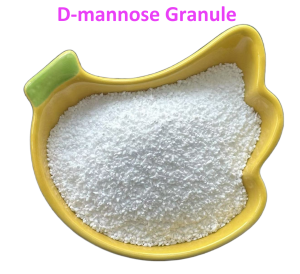
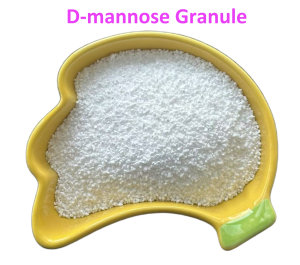
D-mannose is a naturally occurring simple sugar that your body utilizes to help cleanse the urinary tract and maintain a healthy bladder lining. It’s metabolized only in small amounts, with excess amounts rapidly excreted in urine, so it won’t interfere with healthy blood sugar regulation. Clinical studies have demonstrated that, when taken regularly, it promotes normal urinary tract function by cleansing and maintaining the healthy of the bladder lining.
As a simple sugar that occurs naturally in the human body and is found in many fruits. It’s also available as a dietary supplement, which people often take to help prevent or treat urinary tract infections (UTIs).

Specification
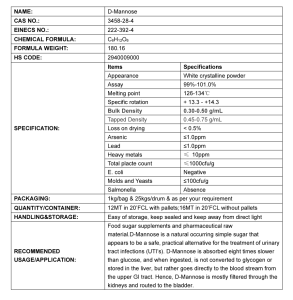
Sources
Natural sources can be from birch trees, palm kernels, potato, corn or fruits such as cranberries and pineapples. Synthetic sources such d-fructose or d-glucose or pure starch through bio-conversions are inexpensive starting materials and widely available.
The production of D-mannose can also introduce additives, in particular if taken in capsule form. Silica, magnesium stearate, rice flour, artificial sweeteners and heavy metals can all be included as bulking agents or form the body of an individual tablet. This ensures cheaper mass production. Do your research first especially if you have allergy issues or are following a preferred regime of avoidance such as soy, gluten or GM products.
Sadly sometimes price does reflect quality of manufacture and purity of product so buyer beware.
When researching a brand look at the amount of pure D-mannose in each pot or tablet. The higher the better. A teaspoon of powder should offer around 2000 mg and a tablet around 500mg. And remember Cranberry products are not the same as D-Mannose. Cranberry extract and juice has been shown not to be effective against recurrent and chronic UTI.
D-mannose for UTIs
Some research suggests that D-mannose may play a part in treating active UTIs and preventing them from developing in the future.
Indeed, a 2022 study found that D-mannose effectively treated acute uncomplicated UTIs and prevented recurrent UTIs, with similar results to antibiotics, in several studies.
Researchers tested whether it could help prevent recurrent urinary tract infections (UTIs) in women with frequent UTIs. Two groups were randomly given d-mannose or a placebo and monitored for six months. However, 51% of the women taking d-mannose and 56% of those taking the placebo still contacted their doctor for UTI treatment during the study.
Ultimately, the findings about D-mannose are inconsistent and more studies are necessary to determine whether it is a useful treatment for UTIs. Without these studies, it is not clear what the dosage of D-mannose should be or whether it may interact with other medications or cause side effects.
Health Benefits
Helps Treat CDGS Type 1b
D-mannose can help treat a rare genetic disorder called carbohydrate-deficient glycoprotein syndrome type 1b because people with this condition don’t produce enough, or any, mannose naturally.
CDGS often disrupts the blood clotting process, which can lead to bleeding, blood clots, or stroke-like episodes. It also leads to gastrointestinal issues, particularly protein-losing enteropathy—a syndrome where excessive proteins are lost in the gastrointestinal tract—which can cause low protein levels in the blood.
Taking D-mannose daily may help prevent some of these complications by introducing mannose to the body from an external source.
May Help Prevent Urinary Tract Infections
Over 50% of adult women will get a UTI in their lifetime, making UTIs the most common type of outpatient infection. The infection is typically treated with antibiotics, but researchers are interested in D-mannose as an alternative treatment that won’t promote the growth of antibiotic-resistant bacteria.
Several clinical studies have investigated the effects of d-mannose monotherapy in the treatment of AUC and prevention of recurrent UTIs. In a prospective, non-comparative study, Domenici et al. analyzed the efficacy of d-mannose in the treatment of acute uncomplicated UTI and its utility in the management of recurrences in 43 women.
The authors observed a significant improvement of most UTI symptoms following administration of 1.5 g d-mannose, twice daily for three days and then once a day for 10 days. Patients were then randomized into two groups, one receiving prophylaxis with d-mannose administered once a day for a week every other month for six months, and the other without d-mannose administration. The recurrence rate for women receiving prophylaxis (4.5%) was significantly lower than in the untreated group (33.3%; p = 0.05). The mean time to onset of UTI was 43 days (±4.1 standard deviations (SD)) in the prophylaxis group, and 28 days (±5.4 SD) in the other group (p = 0.0001). No side effects were reported, even during long-term administration
May Promote Gut Health
It may also act as a prebiotic—a dietary fiber that feeds the good bacteria in your gut. Bacteria in the large intestine ferment (break down) prebiotics, helping good bacteria thrive, producing beneficial short-chain fatty acids, improving the integrity of your gut lining, and boosting immune health.
Unlike glucose and fructose, D-mannose is a sugar that may reduce rather than increase inflammation in the gut. In rodent-based studies, D-mannose powder increased the Bacteroidetes to Firmicutes ratio in the gut, which is notable because low levels of Bacteroidetes are linked with inflammatory bowel disease (IBD).
How To Take D-Mannose
D-mannose supplements are available in capsule and powder form. You may also see D-mannose combined with cranberry and marketed for urinary tract health.
Research shows D-mannose is safe to take to prevent UTIs for up to six months, but the best way to do so isn’t yet standardized.
Some studies have found benefits from taking 1.5 grams of D-mannose every day for one week each month. Other research has shown benefits from taking 3 grams split throughout the day for two weeks, followed by 2 grams daily for six months.
Dosage
Due to the lack of research to date, it is difficult to determine either the right dosage of D-mannose or the form in which people should take it.
It is likely that the correct dosage for treating an active UTI will differ from that for preventing UTIs from recurring.
Some studies indicate that a dose level of 0.2 g/kg of body weight seems to be the upper limit for daily consumption of D-mannose for long-term use, as higher doses may cause gastrointestinal disturbances.
Is D-Mannose Safe?
Because of insufficient research, it’s best to avoid D-mannose while pregnant or breastfeeding. People with diabetes should also be cautious about taking D-mannose supplements, as they may alter blood sugar levels.
Otherwise, D-mannose is generally safe for adults to take orally for up to six months. It’s usually well-tolerated, aside from some digestive side effects–which you can reduce by splitting the dose throughout the day.
There isn’t enough research to know whether it’s safe to take D-mannose for longer than six months, so talk to a healthcare provider before taking it long-term.
Side Effects
D-mannose is unlikely to cause serious adverse effects, but some people may experience digestive side effects from the supplement. The chances of experiencing side effects are higher if you take a high dose all at once, especially if you exceed 200 milligrams per kilogram.
Potential side effects of D-mannose include:
- Diarrhea
- Bloating
- Nausea
- Dizziness
D-mannose is a simple sugar found in fruits and available as a dietary supplement. It may help prevent or treat UTIs by blocking bacteria from sticking to your urinary tract.
D-mannose can also help manage symptoms of a rare genetic disorder called carbohydrate-deficient glycoprotein syndrome type 1b. It may also act as a prebiotic to promote the growth of healthy gut bacteria.
In general, D-mannose is safe for healthy adults to consume as a supplement, but it may have side effects like diarrhea, bloating, or nausea. Before starting a supplement, speak with a healthcare provider to ensure safety and appropriate dosing.
FAQ
1, Is Health Sweet a manufacturer or just a trading company?
We are both manufacturer and trading company, yes, we are the D-mannose manufacturer, at the same time, we are distributor of other products, such as Tagatose, Galactose, Allulose and so on.
2, What is the Min Order Quantity?
Different products have different MOQ, for D-mannose, our MOQ is 100kgs.
3, What is the price?
We are a famous supplier and manufacturer of D-mannose in China, and has been corporate with many suppliers for several years, we can provide you with cost-effective product.
4, How long shall we wait for your reply?
We can guarantee to reply your inquiries in less than 2 hours in working days.
5, What kinds of transportation types can you provide?
Our main transportation methods include air transportation, land transportation and water transportation.
6, What kinds of payment terms can you accept?
The most commonly used payment terms are T/T, L/C, D/P, D/A, etc.
7, How long will I receive my good?
We have own warehouse in Qingdao and Dalian, when your purchase order has been confirmed, inventory products will deliver within 1 week, other products delivery in 2 weeks.

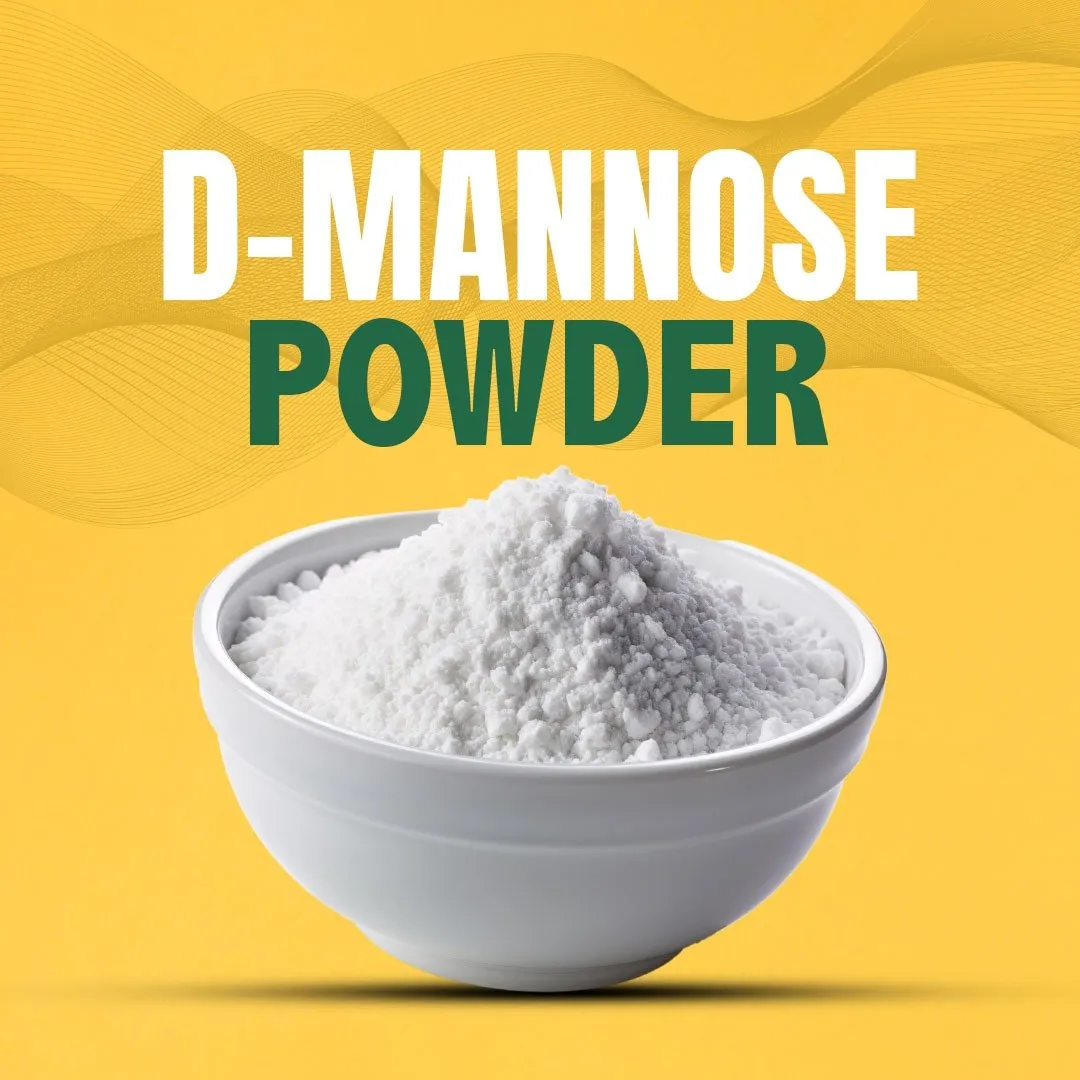
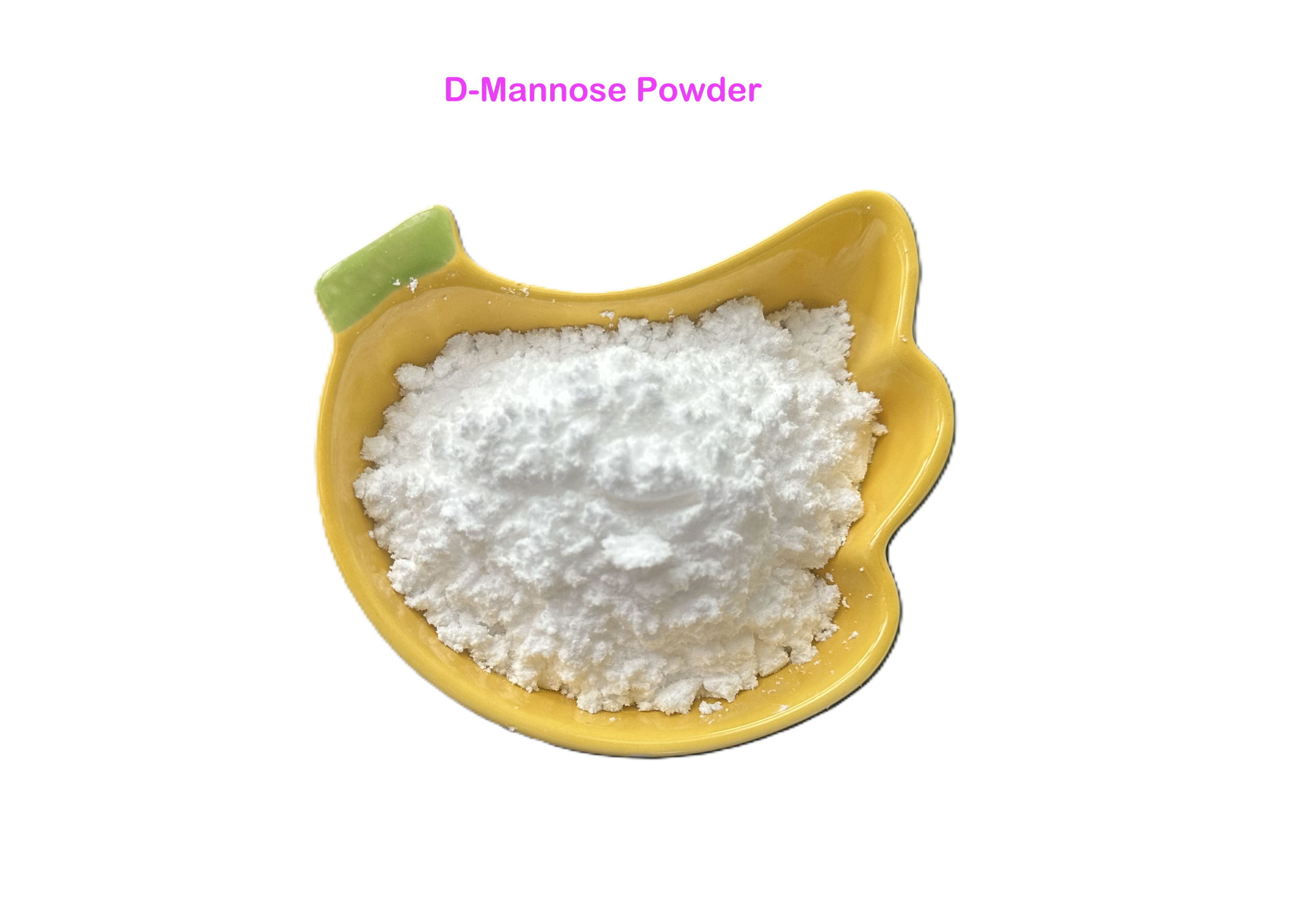
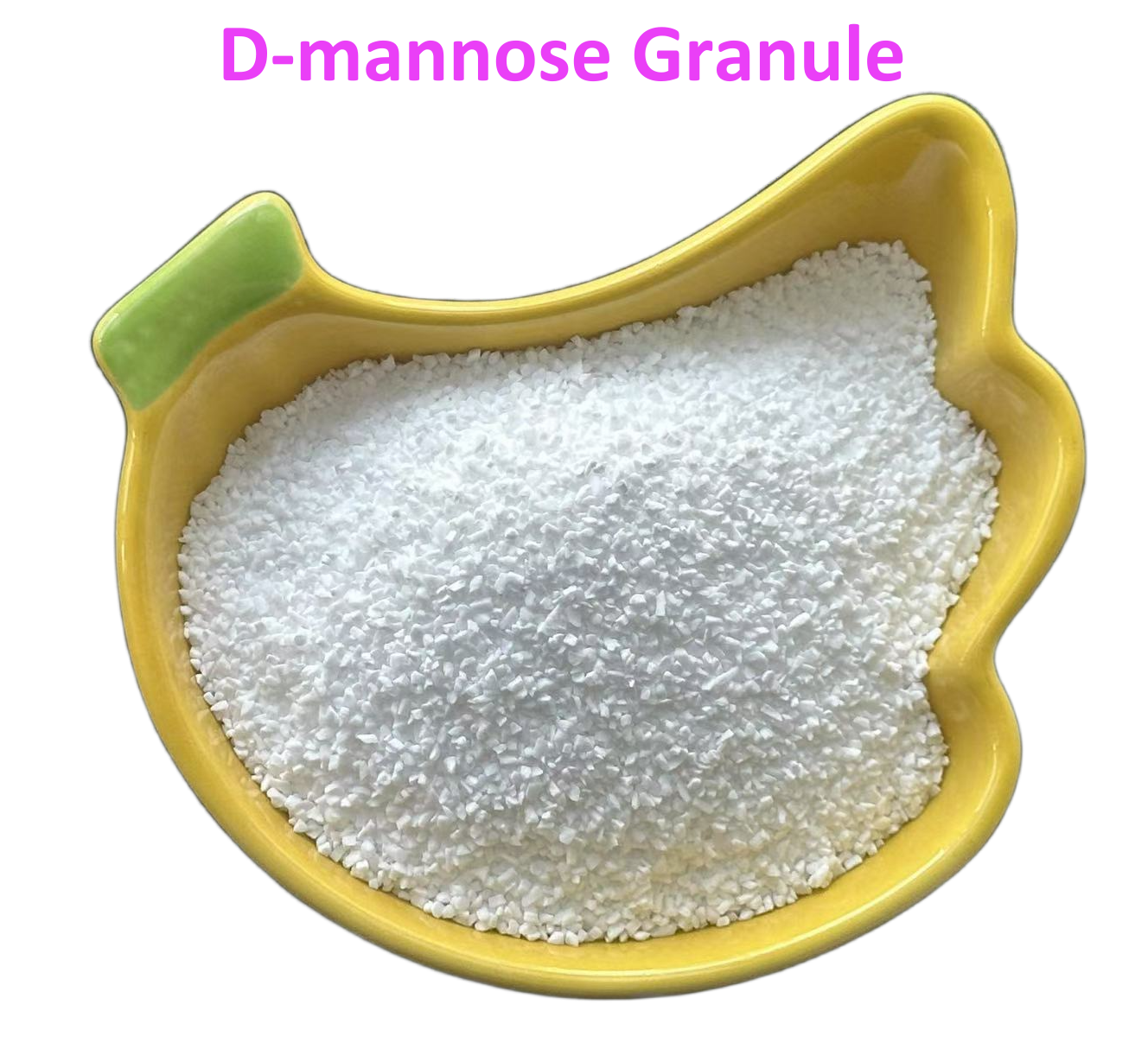
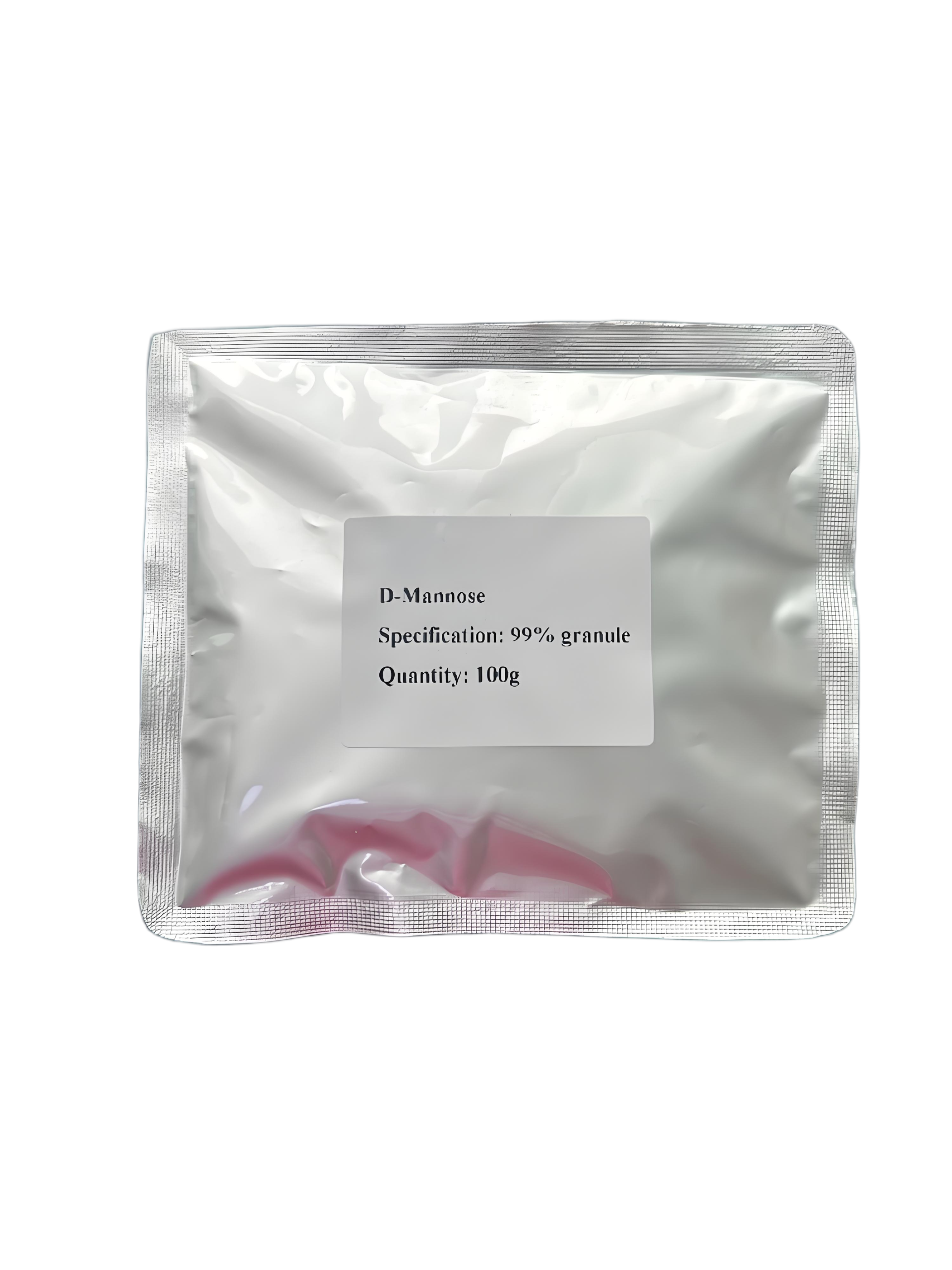
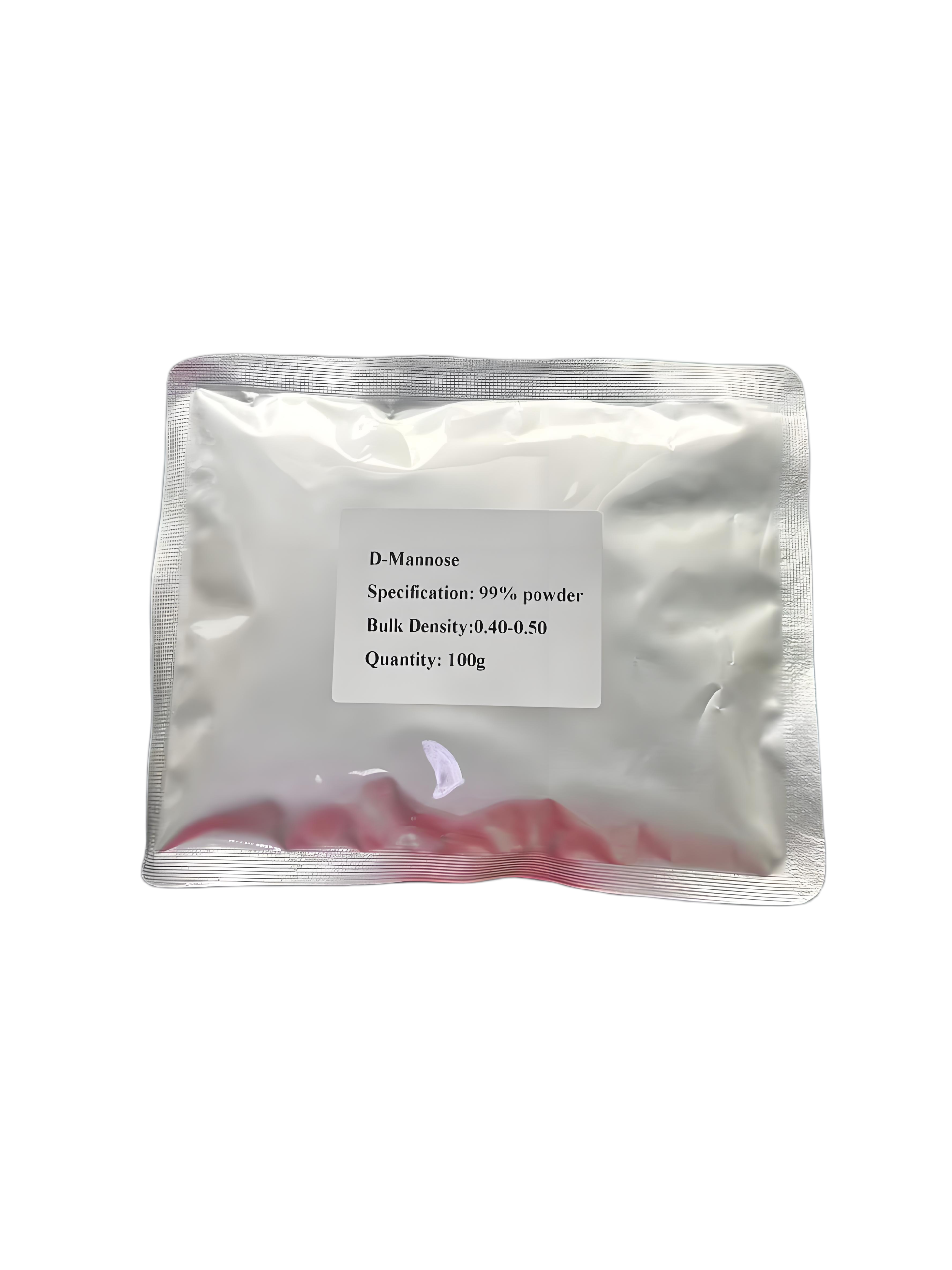




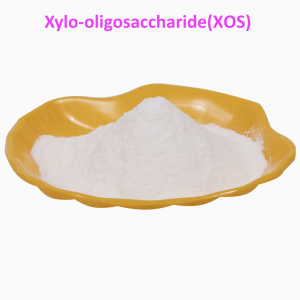
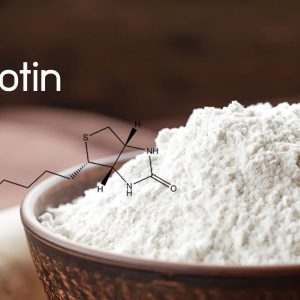

Reviews
There are no reviews yet.